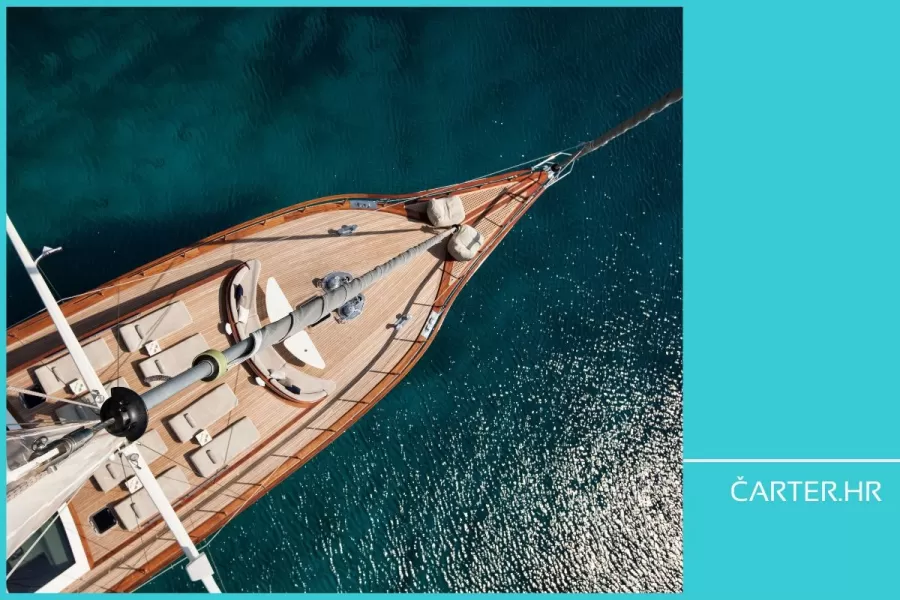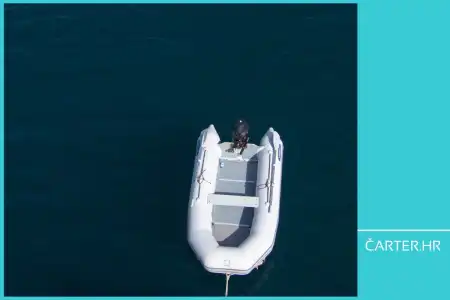
Find out what's new in loans for businesses with foreign owners and HBOR's program for financing islands investments. Among other things, find out in more detail what steps need to be taken to get a loan to start your own nautical charter.
No matter how much we always try to bring up very current topics, they still cannot be compared to specific questions from everyday business life and situations brought up in actual contact. Such was the tone of meetings at the recently held Yachting & Wine 2023, an event organized by the Adria Libar maritime training center from Šibenik.
Let's say something more about each topic to strengthen this sector and have support programs.
1. News in the treatment of business loans with a foreign owner
A welcome news that will interest legal entities for nautical charter is that Croatian banks have begun to approach the financing of the purchase of vessels more seriously in the segment of small and medium-sized businesses to those companies whose owners are foreign nationals or legal entities and are residents of the EU.
Here, in addition to participation in the investment in the range of 20-30% of the total amount, a contract with one of the domestic booking agencies is especially valued as an argument for approval. Furthermore, corporate guarantees of the founding or mother companies based in the EU are considered as a means of insurance - in addition to local credit guarantees given by development agencies and funds such as the domestic HAMAG or the EU EGF.
Also, in some instances of the acquisition of a smaller number of vessels, as a means of securing the placement, guarantees are taken from the natural persons of the owners of both legal entities - both those abroad and those in Croatia.
Of course, you have to pass the so-called onboarding procedure by which the bank or leasing company evaluates the acceptability of the business relationship. Don't worry; as long as you don't deal in weapons or illegal means and don't have gambling or prostitution activities - you are an acceptable financing partner.
The best thing is that the above is also valid for beginners in the nautical business because contractual cooperation and letters of intent from local agencies are considered strong arguments. Although 30% or more of the initial investment is required for beginners, it's clear that both parties need to show readiness for investment.
This is a welcome view of the yacht charter industry since it's the type of tourism that recovers the fastest from all disasters.
In addition, it generates heavy tourist traffic for boat owners and the entire system, from the procurement of basic groceries onwards. The investment here has a multiplicative character for the national economy as a whole.
2. HBOR's program for financing investments in the islands
Speaking about the financing of vessels and tourism in general, it should be mentioned that in addition to all other programs, the domestic Croatian Bank for Reconstruction and Development (abbreviated as HBOR) encourages investments on the islands at an interest rate of 0.80%, with a minimum loan amount of €100,000.00, and maximum:
- 500,000.00 euros if you are a beginner entrepreneur
- 1 million euros for existing entrepreneurs.
Loans aimed at strengthening competitiveness have other advantages besides highly favorable interest rates:
- term of use up to 12 months, and with reasonable dynamics even longer
- grace period of 3 years and the total repayment period, including a grace period of up to 15 years
- the possibility of financing working capital in the amount of up to 30% of the contracted amount of the loan.
It's not a little, and it makes a person happy, definitely.
All the more so as this program is implemented until the available funds of the National Recovery and Resilience Plan (NPOO) are used up, and no later than June 30, 2026.

3. From skipper to owner of a yacht charter company
One of the topics that ran through, especially in the informal part of the meeting, and can be asked from example to example is:
What does someone who is a good skipper or any other employee in this industry have to fulfill in order to get financing from one of the banks or development agencies for their own entrepreneurial venture?
There is no unequivocal answer because each bank covers the risk of giving money to beginners in a business in its own way.
Some will prefer real estate in addition to other things, some will insist on a reliable company for the co-debtor now that you offer them an office building on Jelačić Square or on Stradun, for example, others will ask for very high participation, especially in these times that provide everything but security and precise forecasting.
It all starts with a contract with a suitable charter agency or a letter of intent. It guarantees the future income of the new company you intend to establish and speaks of your seriousness. Purely logical - if you are accepted as a partner to someone who manages a fleet of 50 or more ships, you are not someone random from the street.
Furthermore, as far as participation is concerned, around 30% is usually requested. However, with other strong arguments, it can be 25% of the total investment.
The joint venture of another legal entity with the positive business for the last two years is also a good starting point. It won't take long - if it doesn't work out for you, history says that it will go their way, so you'll have somewhere to pay the loan.
Real estate as a means of insurance is not crucial; it is more of a good support for the claim. Don't forget: the goal of every creditor is to pay off the loan and the agreed interest, not to be bothered with auctions of foreclosed properties.
In addition to all of the above, a good business plan and an investment study or feasibility study are necessary documents to prove to a future creditor that you have carefully considered and documented all aspects of future business, from market analysis and the acquisition and sale of the necessary staff to all the costs that need to be accounted for.
Hiring a consultant with experience in financing the branch saves a lot of time and nerves. Suppose he also speaks the banking language and with practical preparation. In that case, he facilitates a favorable decision by the bank or leasing company - good for everyone.
Categories of trends
- News
- Sale
- Marketing
- SEO
- Web design
- Social media
- Technology
- Regulations
- Management
- Education
- Finances
- User experience
Newsletter
Sign up for the newsletter and receive the latest trends and tips straight to your inbox






